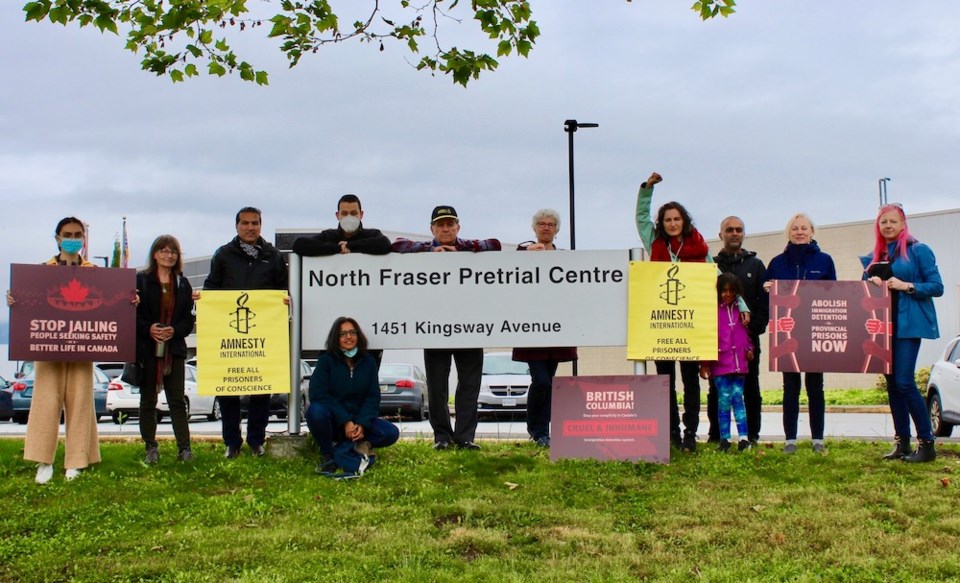A former high school student who was turned away from enrolling in a Coquitlam institution for lack of "acceptable" documents says he felt "rejected" and depressed by the experience.
For more than a year, Justin, who agreed to tell his story if his last name wasn't published, was barred from a B.C. education because his parents couldn't get work permits, although they were employed.
Now, Justin, who came to B.C. from Mexico in 2017, says he hopes other students in his position won't face huge gaps in their schooling as more districts adopt sanctuary school policies.
"The least I can say is at least accept the students [whose parents] are trying for a work permit or those who aren’t even legal here," said Justin, who was eventually accepted at New Westminster Secondary and graduated there in 2020.
"For all those students, there’s nothing to do here, we can’t study, we can’t work, we can’t help our parents."
In May, the Tri-Cities branch of Amnesty International is set to meet with the School District 43 (SD43) board of education in hopes of convincing officials to establish a policy protecting newcomer kids.
Proof of residency
The group believes that students who are "ordinarily resident" should be accepted into classes if they can prove residency with lease agreements, utility bills and other documents while they wait for immigration papers to come through.
"We've had many families that have lived here, this is their home, but their children are not able to enter schools or have had challenges," said Omar Chu, who is a member of Amnesty International and Sanctuary Schools.
Chu, a Coquitlam resident who graduated from Dr. Charles Best, is now an advocate for B.C. residents who face precarious immigration status.
He says requiring students to be "ordinarily resident" more closely matches the intention of the B.C. School Act.
New Westminster (SD40) and Central Okanagan (SD23) school districts have a sanctuary policy, and the idea has been promoted by the BC Teachers Federation.
Vancouver (SD39) in 2021 and Surrey (SD36) in 2023 changed their registration procedures so that children do not have to provide information about their citizenship/immigration status to register in schools.
A welcoming face
Amnesty International would like to see SD43 follow suit to ensure children are welcomed into Coquitlam, Port Coquitlam and Port Moody schools regardless of their immigration status.
"It's about providing a welcoming face and not ruling out people because they don’t have particular documents but trying to figure out what the story is and what the families need and what they are living," explained Chu.
And based on the experience of other school districts, SD43 would not lose funding for these students.
"Immigration laws have narrowed and made permanent residence harder to get and easier to lose....More and more people have precarious immigration status, work permits dependent on employers or without immigration status at all who have made their life here.
"There is a range of people who don’t fit nearly in those check boxes," Chu noted.
Justin said his family came to Canada to flee crime and violence and to seek a "better life."
Grabbed the chance
According to Justin, Mexican nationals were accepted in Canada with just an electronic travel authorization.
"We grabbed the chance and flew here."
His mom got work as a cleaner and his father, who was previously a store manager but had limited English, got a construction job. But it took a long time to find an employer sponsor and get a work permit.
Since graduation, Justin has been accepted to attend a science program at Capilano University with the goal of working in sports therapy. He's working as a painter to save up enough money while he helps to supplement the family's income.
But the gap in his education haunts him still.
"There were always people telling me 'do not worry, it’s just time, you’ll recover,'" said Justin.
"[But] it's awful to see others graduate because you were one year or two years behind."





